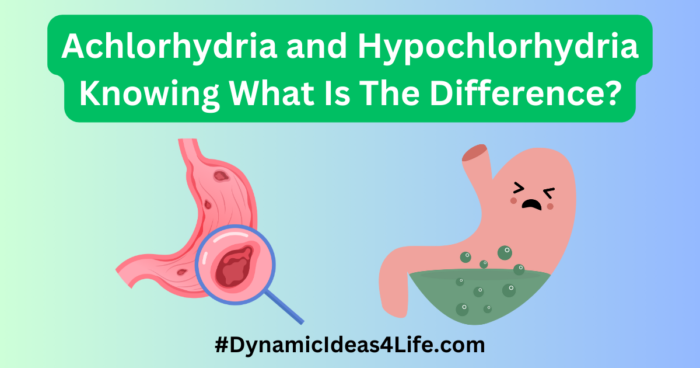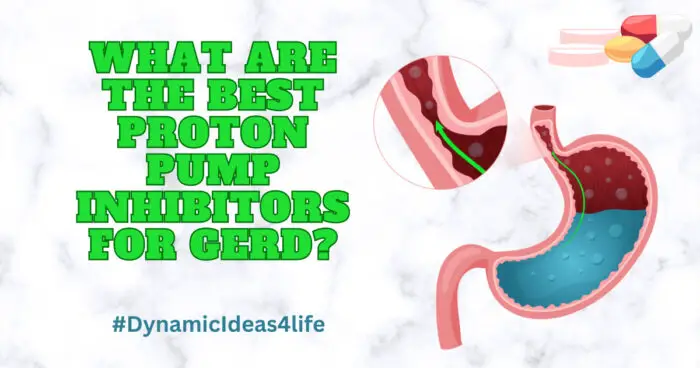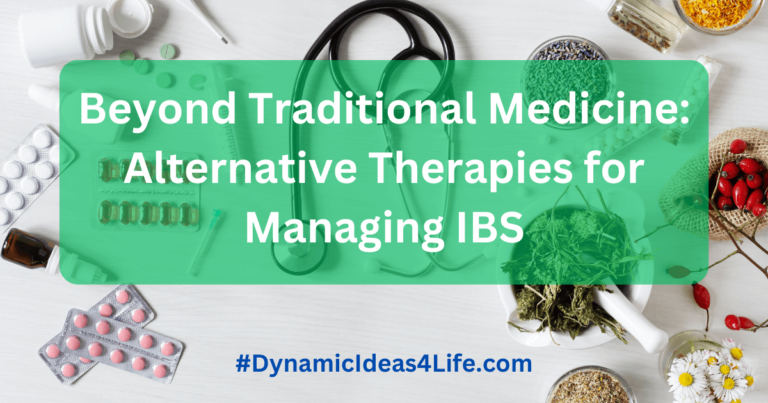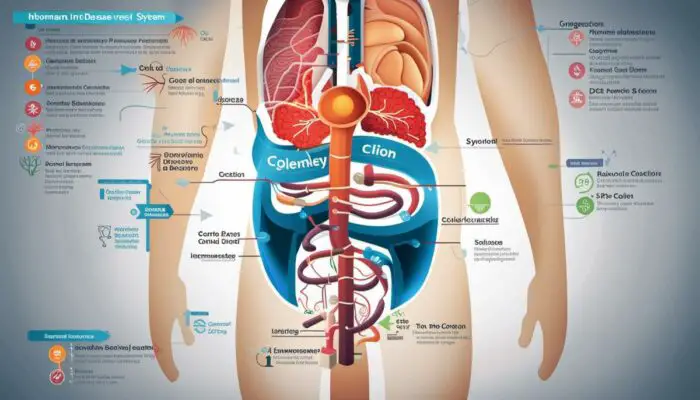Are you wondering What Are The Best Proton Pump Inhibitors For GERD? If so today we are going to be looking at the different types of PPIs and which ones are best for the treatment of Acid Reflux, GERD, and Heartburn.
So, GERD, or Gastroesophageal Reflux Disease, can be an extremely uncomfortable condition to live with. Many people have found relief through Proton Pump Inhibitors (PPIs) but which are the best PPIs for GERD? and are they really the best solution for the treatment of this condition?
In this blog post, we will explore the differences betweenProton Pump Inhibitors (PPIS), and discuss which if any may be the best option for individuals suffering from GERD.
*Please note I am not a qualified medical professional so please keep in mind that this content is only for informational purposes and if you do suffer from GERD always consult with a doctor first.
Also, if this is a relevant topic for you please consider checking out some of our related content.
- Are Proton Pump Inhibitors Bad For You
- What If Proton Pump Inhibitors Don’t Work
- Natural Alternatives To Omeprazole
- PPIs Vs Betaine HCL Vs Antacids: Which I Better?
- Bioptimizers HCL Breakthrough Review
Some of these blog posts may seem quite similar but definitely I will look to make this content its own thing.
If you would like to leave comments or feedback please do so towards the end. It would be great to hear from you –
But for now, let’s begin shall we, with this main question?
What Are The Best Proton Pump Inhibitors For GERD? (If Any?) *The answer may surprise YOU!
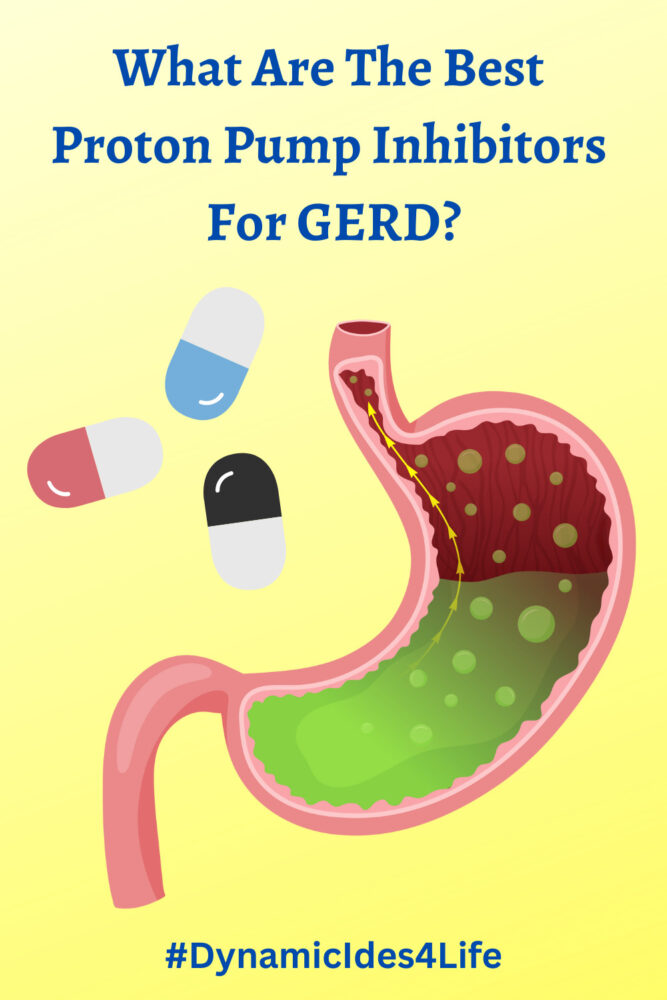
So, for many people all over the world PPIs (Proton Pump Inhibitors) are a commonplace medication to resolve GERD – a disease that is mostly due to unhealthy concentrations of stomach acid inside the Esophagus.
Many adults especially in the Western world will experience acid reflux or heartburn but in more serious cases this can develop into GERD which is a more advanced stomach acid reflux condition.
Over time this can be quite a horrible condition as it can cause permanent damage including scarring to the esophagus as well as esophagitis, Barretts Syndrome, and Internal bleeding.
Why finding ways to neutralize these acidic conditions is so very important. If you suffer from acid/reflux or heartburn it is important to take action before this becomes worse such as in the case of GERD.
I will talk more about GERD in the next section if you are interested please keep reading. Now…
What Actually Is GERD?
Gastroesophageal reflux disease (GERD) is a common condition that affects millions of people worldwide. It is an advanced chronic health condition in which stomach acid flows back into the esophagus, causing discomfort and pain.
Proton pump inhibitors (PPIs) are a class of medication commonly used to treat GERD as well as reflux and heartburn. Their sole purpose is for reducing the production of stomach acid and for many, this is an effective treatment to alleviate symptoms such as heartburn, acid reflux, and chest pain.
However, conditions such as Indigestion, gut inflammation, and bloating can all be responsible for acid reflux. In this case, PPIs may not always be the best solution for GERD or acid reflux but for those that are considering PPIs, there is quite a list of different types available. This I will explore further in the next section.
Examples of Proton Pump Inhibitors
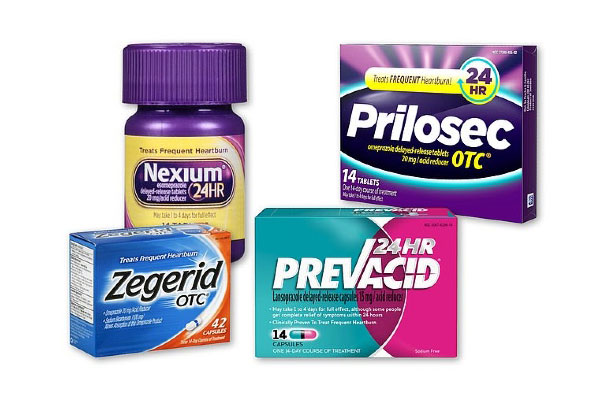
Some examples of common proton pump inhibitors (PPIs) include omeprazole (Prilosec), esomeprazole (Nexium), lansoprazole (Prevacid), pantoprazole (Protonix), and rabeprazole (Aciphex).
These medications are commonly prescribed to reduce stomach acid production and alleviate symptoms of conditions like GERD. Each, I will briefly summarize below. So…
- Omeprazole (Prilosec): Omeprazole is one of the most commonly prescribed PPIs for GERD. It is available over the counter or by prescription. It is very similar to Esomeprazole but there are differences.
- Esomeprazole (Nexium): Esomeprazole is a newer PPI that is very similar to omeprazole. It is available by prescription. Some studies suggest that esomeprazole may have a slightly greater acid-suppressing effect compared to omeprazole. For users of Omeprazole, this might be prescribed if it does not work
- Lansoprazole (Prevacid): Lansoprazole is another popular PPI that is available over the counter or by prescription. This is also very similar to Omeprazole and Esomeprazole but this is again a medication that may offer different results.
- Pantoprazole (Protonix): Pantoprazole is a prescription-only PPI that is often used for GERD, as well as for other conditions that involve excessive stomach acid. It has a similar mechanism of action to other PPIs, but it may be favored in certain situations due to its specific properties.
- Rabeprazole (Aciphex): Rabeprazole is a prescription-only PPI that is often used for GERD and other conditions involving excess stomach acid.
*Rabeprazole may be an alternative for individuals who do not respond well to other PPIs or who experience side effects with other options. These are not all of the PPIs that are out there and Doctors may offer different solutions depending on your symptoms and which they feel is best for you but here is an interesting idea that you may have not thought about. Too much stomach acid may not be what is causing GERD!
I think people are seriously undereducated here because one thing I think people should understand is this…
What Is The Best PPI for the Treatment of GERD?
Omeprazole or Esomeprazole is probably the most prescribed PPI but the one I think is a good outside bet is – Pantoprazole (Protonix) may be preferred in certain situations due to its specific properties. These include;
- Drug Interactions: Pantoprazole has a lower likelihood of interacting with other medications compared to some other PPIs. This property makes it a favorable choice for individuals who are taking multiple medications, reducing the risk of adverse drug interactions.
- Long Duration of Action: Pantoprazole has a longer duration of action compared to some other PPIs. This means that a single dose of pantoprazole can provide sustained acid suppression for a longer period, which can be beneficial for individuals who require longer-lasting relief from GERD symptoms.
- Liver Metabolism: Pantoprazole is primarily metabolized in the liver, which may be advantageous for individuals with impaired kidney function. Other PPIs, such as omeprazole and esomeprazole, are primarily eliminated through the kidneys and may require dose adjustments in individuals with renal impairment.
- Variability In Individual Response: While all PPIs work by reducing stomach acid production, individual responses can vary. Some individuals may find pantoprazole more effective in controlling their GERD symptoms compared to other PPIs. Thus, it may be preferred for those who have not achieved sufficient symptom relief with other options.
I have yet to personally find any PPIs that I haven’t negatively responded to and any type (I think) can be something that does more harm than good. This I know may not be something people want to read about but PPIs do come with their risks.
Possible Interactions With Other Medications
Proton pump inhibitors (PPIs) can interact with certain medications, potentially affecting their effectiveness or increasing the risk of side effects. For anybody that might already take medications for separate conditions here are some common ones to try and avoid for possible interactions. These include;
- Clopidogrel (Plavix): PPIs, particularly omeprazole and esomeprazole, may interfere with the effectiveness of clopidogrel, a medication used to prevent blood clots. It is recommended to use alternative acid-suppressing medications like famotidine or ranitidine if co-administration with clopidogrel is necessary.
- Anticoagulants: PPIs may increase the risk of bleeding when used in combination with anticoagulant medications like warfarin or direct oral anticoagulants (DOACs). Close monitoring of blood clotting parameters is essential in such cases.
- Benzodiazepines: PPIs can inhibit the metabolism of certain benzodiazepines like diazepam and triazolam, leading to increased levels of these medications in the body. Adjustments in benzodiazepine dosage may be necessary.
- Methotrexate: Concurrent use of PPIs with high-dose methotrexate, a medication used in cancer treatment and autoimmune conditions, can increase the risk of methotrexate toxicity. Close monitoring of methotrexate levels and potential dose adjustments are important.
- Certain HIV Medications: PPIs like omeprazole and esomeprazole may interact with certain antiretroviral medications used to treat HIV, such as atazanavir and rilpivirine. It is recommended to consult with a healthcare professional or pharmacist regarding potential interactions and appropriate dosing schedules.
Alternative Treatments For GERD
So whatever PPI you take whether prescription only or OTC (Over the Counter) people should be aware of the associated risks. Even without interactions with other medications PPIs can do more harm than good and may only work as a temporary fix at best. You should find out the true nature of your acid reflux condition first before taking them 100%.
You should find out if your stomach acid levels are actually sufficient and that the root cause of your health issue is NOT something else. What some people may not realize is GERD can be caused by Bloating and Indigestion. When there is too much pressure against the stomach this can be what is pushing stomach acid up into the Esophagus.
Not having enough stomach acid can actually be a cause of this. One is because of Indigestion, two because stomach acid signals the pancreas to release certain digestive enzymes, and three the Lower Esophagal Spinchter (LES) is signaled to open and close by stomach acid as well.
In this case, treatments that may be beneficial are Probiotics, Digestive Enzymes, and Betaine HCL Supplements.
You should of course determine if this is actually the problem because you can produce too much stomach acid but some researchers do claim that more often than not it is a stomach acid deficiency rather than there being too much.
So What Do I Recommend?
As I did mention above I am not a qualified medical professional, I am a health researcher with about 3 and a half years experience. I’m definitely still learning and there is much I still need to keep learning but there is a certain supplement that I really like the look of it is a combination of Digestive Enzymes and Betaine HCL. It is also pepsin free which makes it vegan-friendly but this is good because many Betaine HCL supplements with pepsin affect the natural production of this enzyme.
I highly recommend you check out this website for this product here and also check out this product’s main website because they sell this product in a bundle with an L-Plantarum Probiotic supplement. For added effect, if you can afford the extra I would definitely recommend but if you would just like to try this Betaine HCL on its own (1 bottle) you are covered for 1 year.
I will share links here and I will let you decide. Not found anything else like this yet but maybe just have not come across it. If I do I will add a new review in the future. So anyway check out the links below;
- About Bioptimizers HCL Breakthrough (Pepsin Free Betaine HCL with Digestive Enzymes Supplement)
- About Biotimizers P3-OM L-Plantarum Patented Strain Probiotics)
- Bioptimizers Main Store Link to view all products Including Bundles/Stacks.
In Conclusion
So what are The Best Proton Pump Inhibitors For GERD? A tricky question I think – I would not personally trust any of them. Pharmaceuticals are a bit of a touchy subject for me but you should not really listen to me over doctors and medical professionals. Maybe some things I have written about may be good information for you.
The right diet and lifestyle changes might be a good place to start if you suffer from GERD, Acid Reflux, or Heartburn.
Check out my article Natural Alternatives to Omeprazole for ideas and inspiration, and hope you find this helpful.
Any questions I will gladly try and answer in the comments. Best regards and many thanks for reading.
*See related content below


